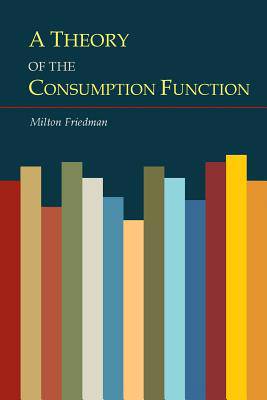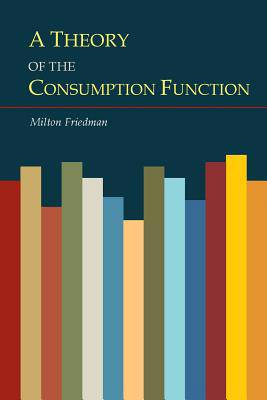
- Afhalen na 1 uur in een winkel met voorraad
- Gratis thuislevering in België vanaf € 30
- Ruim aanbod met 7 miljoen producten
- Afhalen na 1 uur in een winkel met voorraad
- Gratis thuislevering in België vanaf € 30
- Ruim aanbod met 7 miljoen producten
Zoeken
€ 22,45
+ 44 punten
Uitvoering
Omschrijving
2015 Reprint of 1957Edition. Full Facsimile of the original edition. Not reproduced with Optical Recognition Software. In this book Friedman developed the permanent income hypothesis (PIH). As classical Keynesian consumption theory was unable to explain the constancy of savings rate in the face of rising real incomes in the United States, a number of new theories of consumer behavior emerged. In his book, Friedman posits a theory that encompasses many of the competing hypotheses at the time as special cases and presents statistical evidence in support of his theory. "Friedman described Keynes's theory of a declining propensity to consume as 'very imaginative and thoughtful.' But in "A Theory of the Consumption Function" (1957), he demonstrated that while the hypothesis seemed to make psychological sense, it was empirically false. In relating income to propensity to consume, Keynes had erred in not distinguishing between 'transitory' and 'permanent' income. In fact, consumption does not decline as incomes generally rise. Economists across the political spectrum agreed with Friedman's refutation of Keynes...."--James A. Nuechterlein, Commentary
Specificaties
Betrokkenen
- Auteur(s):
- Uitgeverij:
Inhoud
- Aantal bladzijden:
- 258
- Taal:
- Engels
Eigenschappen
- Productcode (EAN):
- 9781614278122
- Verschijningsdatum:
- 28/04/2015
- Uitvoering:
- Paperback
- Formaat:
- Trade paperback (VS)
- Afmetingen:
- 156 mm x 234 mm
- Gewicht:
- 399 g

Alleen bij Standaard Boekhandel
+ 44 punten op je klantenkaart van Standaard Boekhandel
Beoordelingen
We publiceren alleen reviews die voldoen aan de voorwaarden voor reviews. Bekijk onze voorwaarden voor reviews.











